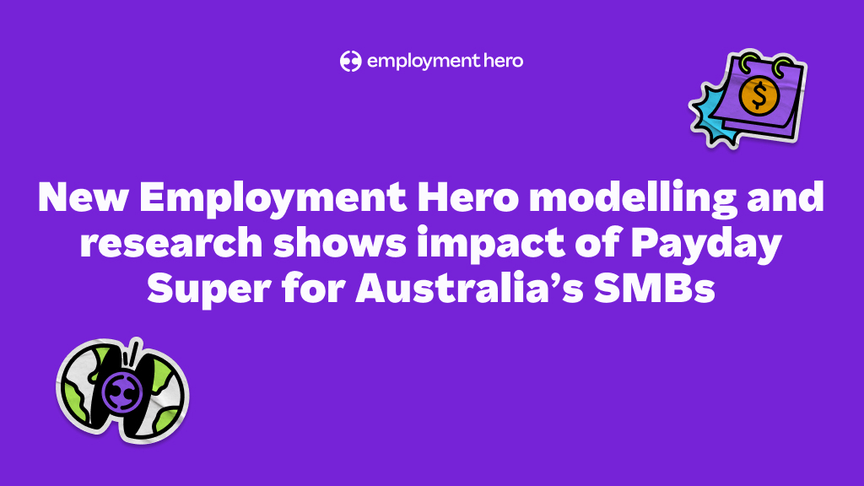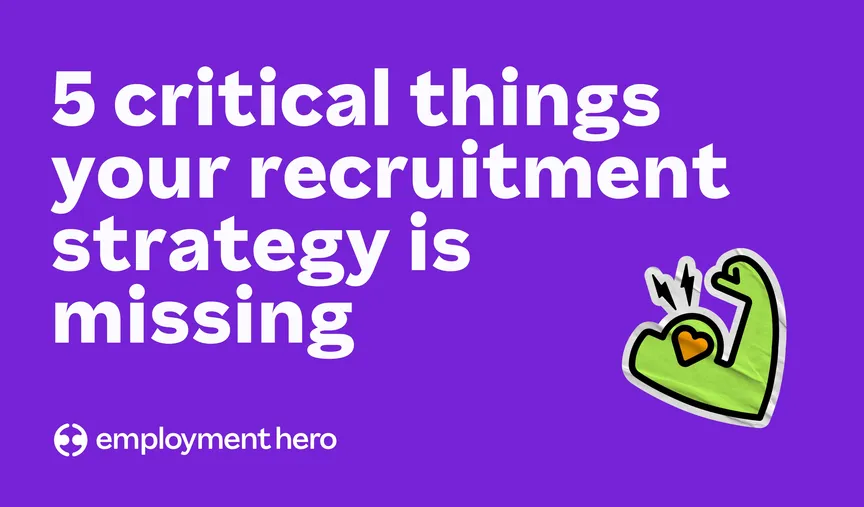Unpaid Super: The Consequences for Your Business and You Personally
We don’t want you to suffer the consequences. So, here’s everything you need to know and avoid when it comes to unpaid super.

Don’t make this super mistake. Unpaid super has big consequences both for your business and you personally.
Back in December, a joint Industry Super Australia (ISA) and Cbus report hit the headlines declaring that 2.4 million workers had been short changed $3.6 billion in superannuation in the 2013-14 financial year. Fast forward six months and this number has been revised somewhat.
It’s more like 2.76 million workers who are owed $5.6 billion in unpaid super each year. That’s a lot of dough.
We don’t want you to suffer the consequences. So, here’s everything you need to know and avoid when it comes to unpaid super.
Poor cash flow often to blame for unpaid super
In small businesses, borrowing employees’ super to cover cash flow issues is sadly all too common. For the most part, small business owners are backed into this position because creditors fail to pay on time. It’s simply a flow-on effect.
If you’re like most small businesses, you don’t have a lot of margins. So when a creditor fails to pay or pay on time, finding the dollars to pay super contributions on time can be difficult.
Penalties for not paying super
But before you rob Peter to pay Paul, make sure you understand the consequences. As a business owner, super obligations are an important part of overall HR compliance.
You must comply with your obligations to make minimum Superannuation Guarantee (SG) contributions to an employee’s nominated fund by the quarterly payment due date.
Failure to pay superannuation on time can have a long-lasting negative impact on your reputation and on your employer brand. Penalties for not paying superannuation will also cost your business financially – as much as a $10,500 fine.
You need to lodge a SG charge statement with the ATO, and make a payment for:
- The ATO’s estimate of the outstanding amount
- 10% interest on the outstanding amount
- An admin fee of $20 per employee, per quarter
Directors are personally responsible
And remember, if you’re a director, under the director penalty regime, you’re also personally liable for Super Guarantee Charge obligations.
Even as a former director, if the penalty for not paying super became due while you were a director, you are still liable.
For additional strategies on engaging employees with their super contributions, consider mastering digital branding techniques. If you’re seeking new strategies to boost member engagement, showcasing the value your super fund offers, this is the webinar for you.
Take steps to ensure compliance
As a director, you should know whether or not the company is complying with its tax and superannuation obligations as they become due. This means taking steps to determine what the company’s obligations are and ensuring that a reporting system is in place to meet these requirements.
One that would allow you to act in a timely way if something goes awry. This is your responsibility.
When do you have to pay super for employees
For ease of cash flow, it’s good practice for you to pay employee super contributions on each pay day, though it’s not compulsory to pay them into the nominated funds until the quarterly due date:
| Period ending | Due date |
| 30/09/2020 | 28/10/2020 |
| 31/12/2020 | 28/01/2021 |
To reduce the risk of missing a deadline or skipping a payment altogether, take these steps:
- Use a separate bank account that is solely for paying super contributions
- Put the due dates in your calendar, with a reminder a couple of weeks before the deadline
- Ensure you give new employees a Standard choice form advising them of your default super fund, and allowing them to advise you of their choice of fund within 28 days of their start date
TIP: Where you can’t meet the superannuation guarantee contribution in full, try making a partial payment – you’ll reduce the size of your penalty!
Record keeping
Of course, paying super on time is just part of your compliance obligation. You also need to keep detailed records which include:
- How much Super Guarantee you paid each employee with receipts or other documents issued by the fund
- Confirmation that your nominated (default) fund offers a MySuper product
- Evidence that you’ve given the Standard choice form to all eligible employees, and the written information your employee provided when they nominated their chosen fund
Do you have all this documentation in place currently?
No time for delays
It’s also worth bearing in mind that super contributions are a legitimate business expense. Paying your quarterly contributions before the end of the financial year may be beneficial when tax time comes around next. Check with your accountant for more on this.
Ensure HR compliance
As you tackle your superannuation obligations before the end of the financial year, it’s a smart move to go ahead and assess your overall compliance with regulations around employing people.
Other helpful resources:
Related Resources
-
 Read more: Guide to long service leave entitlements in Australia
Read more: Guide to long service leave entitlements in AustraliaGuide to long service leave entitlements in Australia
Understanding long service leave entitlements can be challenging. We share everything employers need to know about managing it.
-
 Read more: The $124,000 Cashflow Crunch: Small and Medium Businesses (SMBs) at risk under proposed Payday Super Requirements
Read more: The $124,000 Cashflow Crunch: Small and Medium Businesses (SMBs) at risk under proposed Payday Super RequirementsThe $124,000 Cashflow Crunch: Small and Medium Businesses (SMBs) at risk under proposed Payday Super Requirements
New Employment Hero modelling and research shows businesses will need an extra $124,000 in working capital on average to meet…
-
 Read more: From hiring mismatch to SmartMatch: 5 critical things your recruitment strategy is missing
Read more: From hiring mismatch to SmartMatch: 5 critical things your recruitment strategy is missingFrom hiring mismatch to SmartMatch: 5 critical things your recruitment strategy is missing
We’ve wrapped up five critical things your recruitment strategy might be missing so you can feel confident in your hiring…





















